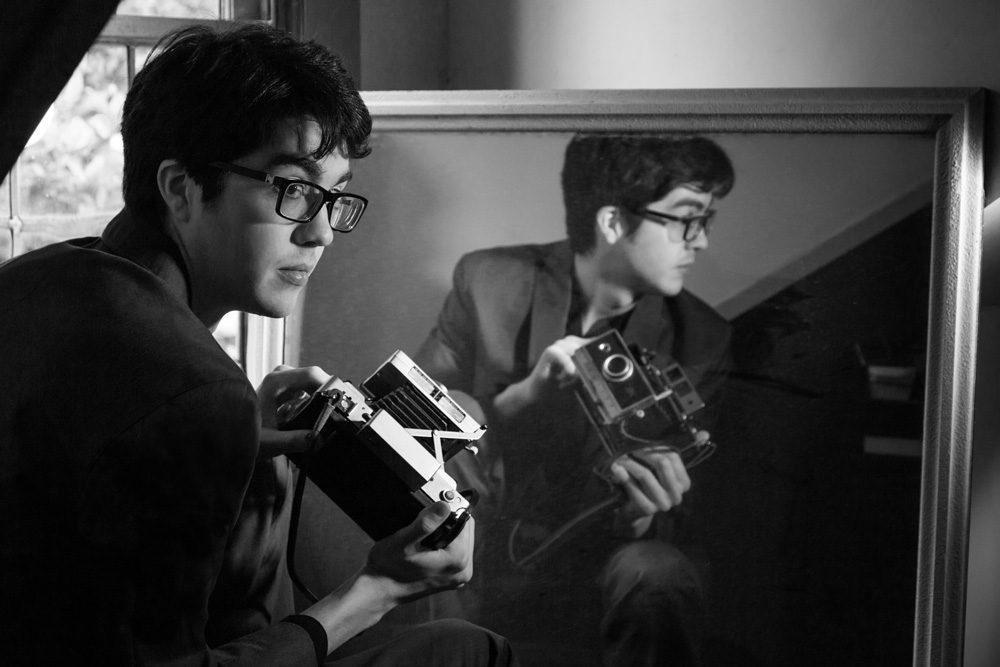AF 2019 IN REVIEW: Stef Chura Explores New Perspectives on Midnight


The year’s end is ripe for self-reflection, and the decade’s end, even more. It is easy to get inside your head; to obsess over the past and the things that may have been different had you kissed that person, taken that job, gone home just a little earlier that night. It’s more difficult to let things go.
Stef Chura’s sophomore LP Midnight is a step forward, away from the past, and it sees her rejecting old habits for new ones at every turn. Produced by Will Toledo of Car Seat Headrest, Chura speaks fondly about how working together was truly a collaboration. Like Car Seat Headrest’s re-recording of Twin Fantasy, some of the songs on Midnight are rewritten demos, and in both cases, adding new people into the mix makes these songs feel less alone. Their parallels don’t stop there; both artists have evolved by mixing their vocals closer, letting themselves be truly audible for the first time. Being open-minded to different angles and approaches let Chura explore musically what she’s been doing lyrically for years, whether that’s an added layer of percussion, or just having a second guitar player, or a few years of confidence to add a new perspective.
“Scream” explores those shifting points of view right away; it examines the concept of an idealized self and idealized versions of other people – so basically, Instagram. Chura is “dreaming of being nice,” yet longs to reveal her truest self, her fears, her frustrations, to someone else who will really see her (“You know me / But I’m lonely” she sings, laying that disconnect bare). Guitars, like lyrics, start and stop staccato – unfinished thoughts, so as not to offend, perhaps. She’s reintroducing herself to listeners and revealing something new about herself all at once.
Indeed, there’s something familiar about the tone of Midnight. Younger artists tend to be musical polyglots – drawing from every era, songs they remembered liking growing up. The entire history of a band can be read on Wikipedia in a matter of minutes, their entire discography just a click away. That’s become a strength: you have Car Seat Headrest namedropping Frank Ocean, James Brown, and They Might Be Giants in one song. You have Soccer Mommy covering Springsteen’s “I’m On Fire” and collaborating with Snail Mail on a rendition of mom car mixtape favorite Goo Goo Dolls. In ways that don’t feel obvious, Midnight draws from everything before Chura’s time. “They’ll Never” has a very college rock guitar jangle, while “All I Do Is Lie” feels like a spiritual sequel to Yeah Yeah Yeahs’ “Maps” thanks to Chura’s Karen O-esque warble. The album even ends with a cover of Billy Idol’s “Eyes Without A Face.”
Though she takes it in new directions, Chura is never totally unmoored from her past. “Love Song” uses a short and conversational approach reminiscent of some of her earlier work, and displays the trademark nervy humor (“Before I forget / Oh, they told me to write you a love song”) that initially endeared her to fans. On a more serious note, “Sweet Sweet Midnight” is about dreaming of a friend who passed away, waking to remember they’re not there; it was this person’s death that motivated Chura to record her 2017 debut Messes – a step toward a risk because, you know, life is short. The song muddles along, feeling its feelings. Yet the catharsis of the song is huge – Chura and Toledo shout-sing together, a key change so fast it’s like a splash of cold water.
“They’ll Never” is another kind of goodbye, one for an era and geographic location of Chura’s life. It’s an elegy, but also a damnation: “They’ll never tear this place apart.” Chura’s vowels stretch and waver, lyrical phrases stop and restart in places you don’t expect, like finding your belongings in a room they’re not supposed to be. Her lyrics are confessional, but you’d never know; they’re obscured on multiple layers on purpose. She understands them, but we can form our own impressions and opinions about them.
Chura is more overt on the album’s lead single “Method Man,” a side-eye to a man “Ripping up a box of books / He says I’ll never understand.” It’s measured for just over a minute, then a mood change – something driving, something wild; a repetitive, slightly off guitar tone persists throughout, a cluster headache of sound. Her sonic spontaneity may put her at odds with the predictable titular character, but it’s wise not to get too comfortable with Chura, who often takes the most unexpected routes available. On the whole, Midnight offers a goodbye to old ways, to old friends, old places. Letting go isn’t always about leaving it all behind; sometimes it’s about reexamining things from a new perspective and running wild with it. Midnight means a new day has started, after all.





